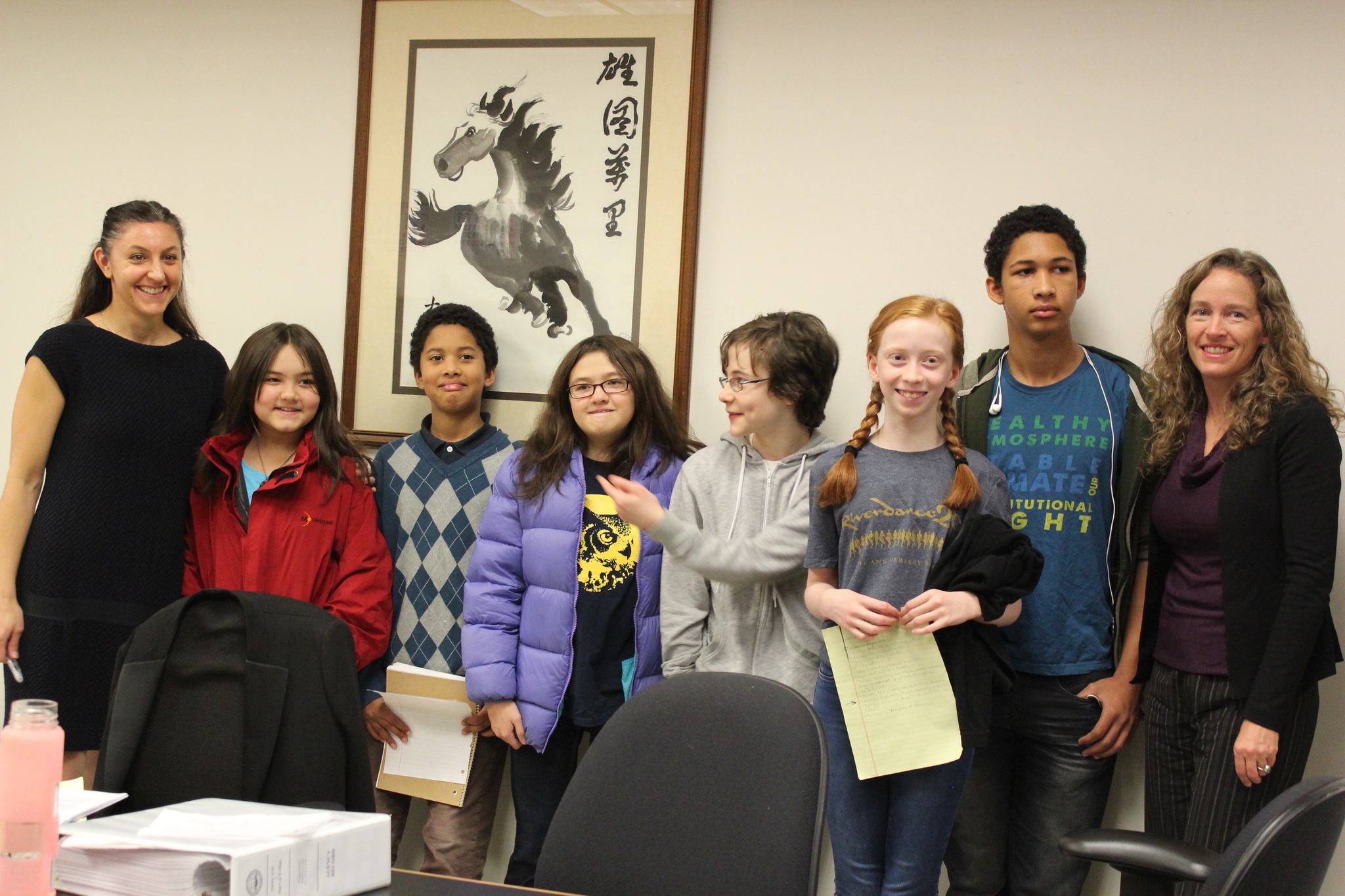The kids’ climate change lawsuit in Washington state has now been ongoing, in one form or another, since June 2014. And on Monday afternoon, it just got much bigger.
King County Superior Court Judge Hollis Hill, who has ruled favorably toward the plaintiffs in the past, said Monday that while the kids no longer have a case against the Department of Ecology, they can go ahead and build a new case, this time with Governor Jay Inslee and the State of Washington listed as defendants, too.
So, in many ways, Monday’s ruling is like Judge Hill’s previous rulings: The kids lost, but they won.
“It’s really exciting,” says the kids’ attorney, Andrea Rodgers. “It’s a whole new world… this has become a very different case.”
A brief recap: Eight youth plaintiffs from Seattle have been asking the Department Ecology to develop a carbon rule that would reduce emissions in Washington state according to the best available climate science, and thus protect their constitutional right to clean air, for the past two-and-a-half years. (That’s long enough for several to turn from tweens to teens). Their case has gotten much farther than the vast majority of similar state-level cases that the Oregon-based nonprofit Our Children’s Trust has been leveraging across the country since 2011.
But each time, according to Rodgers, while the spirit of the effort was wholly recognized by the Court, the hoped-for outcome of the effort — the creation of an effective plan to dramatically reduce carbon emissions in Washington — has stagnated. Ecology did abide by Judge Hill’s deadlines, and did come out with a Clean Air Rule in mid-September that requires the state’s biggest polluters to reduce their emissions by 1.7 percent per year. But 1.7 percent per year is not nearly enough, the kids and their counsel say, to protect their right to a stable, livable climate.
So, in November, they returned to court once again to demand that Ecology be held in contempt, because the rule does too little, and thus ignores the Court’s order. At the time, Rodgers said, while “the judge clearly agrees with us,” it wasn’t clear how she could side with the kids without weighing in on the validity of the Clean Air Rule, which is currently being challenged in Thurston County Superior Court by the state’s biggest gas utilities. (Go figure.)
But what Judge Hill ultimately decided on Monday was likely the best outcome that Rodgers and the kids could have hoped for. She did not hold Ecology in contempt, as they’d asked, but she did grant the kids’ motion to amend and re-file their original complaint, “due to the emergent need,” she wrote, “for coordinated, science-based action by the state of Washington to address climate change before efforts to do so are too costly and too late.”
And with that, the kids’ legal team can regroup. They plan to use all the materials and expert testimony they’ve gathered from climate scientists such as Dr. James Hansen and take it to trial in 2017. Their claim? “Both Governor Inslee and the state of Washington, by their aggregated actions,” Rodgers says, “have violated the Constitution and the Public Trust Doctrine.” That’s the legal principle that says it’s the government’s duty to protect natural resources for the public’s use; it’s the basis for the kids’ case, and all of the Our Children’s Trust cases, which includes an ongoing federal lawsuit, too.
“Judge Hill made it about truth,” says plaintiff Athena Fain, the 13-year-old president-elect of Plant for the Planet Seattle. “Science doesn’t lie to us. Science tells us the truth. We want to look for the truth with science. It’s not that hard to find.”
Incidentally, Monday was also the day that the Department of Ecology released its biannual Greenhouse Gas Emissions report, which recommends emissions-reduction targets for Washington. In it, the agency allows that the Clean Air Rule may not may not reduce emissions here at all, in part because it authorizes companies to purchase carbon offsets in other markets outside the state. (Again, go figure.)
In any case, while Ecology’s new GHG report goes leagues beyond what the Clean Air Rule stipulates, it still falls short, according to Our Children’s Trust, of what climate scientists say will keep us anywhere near 350 parts per million.
This report, says Rodgers, “is another example of the agency continuing to pursue policies and make recommendations that are not based on science and won’t protect the rights of young people.” Monday’s ruling, which promises another big year for the climate kids in Washington, “will finally give [the kids] an opportunity to present their scientific evidence in a court of law.”
As former Plant for the Planet president Gabe Mandell puts it: “The time has long passed for Ecology to stop nibbling around the edges of the climate emergency.”
Michael Foster, co-founder of Plant for the Planet’s Seattle chapter and father of two of the original plaintiffs, predicts that the defendants “will argue their new limits are economically justified or constrained.” But “they fail to protect a generation of youth, nature, and all life to come,” he says. “We will win.”








